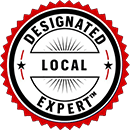What is a Home Improvement Loan?
Homeowners have the option to apply for home improvement loans for reasons, such, as renovating, upgrading or fixing up their homes. These loans can cover anything from a simple roof repair to installing an energy furnace or adding a section to the house. Repayment methods for this loan type offer flexibility. Homeowners can opt for a loan. Use their home equity as collateral. They could also consider taking out a mortgage loan or a subordinate loan. Each situation is different. Requires consideration of the most suitable financing option.
If You Lack Sufficient Equity in Your Home;
- For repairs or updates; An unsecured loan would be your feasible choice in this scenario. Since the repairs or updates are minor and wouldn’t significantly increase the property value lenders may not accept your home, as collateral. As its unsecured the interest rate will be higher compared to secured loans using property however you won’t face the closing costs associated with mortgage loans.
- For repairs, upgrades or renovations; You might have a couple of alternatives If your current interest rate, on your mortgage is low you might consider opting for a mortgage to maintain that favorable rate. Conversely if your current mortgage rate is higher than the prevailing market rate you might want to explore refinancing options such as a renovation loan or cash out refinance based on the “as repaired” value to take advantage of rates. In both scenarios the lender will likely request plans for repairs and renovations to assess the propertys improvement value. While these loans typically offer interest rates compared to loans they may involve higher closing costs. Your available choices will hinge on the appraisal results reflecting the improved property value as lenders often enforce a loan to value limit.
If you have equity in your home;
- For repairs or updates; If the loan amount is relatively small it may be more practical to consider an unsecured loan or line of credit, with minimal or no closing costs. Opting for a low cost financing option makes sense when dealing with loan amounts. An unsecured loan usually carries an interest rate compared to a home equity line of credit (HELOC) which also offers the flexibility of reusing funds when needed.
- For repairs updates or renovations; If you have equity, in your home the lender may be willing to provide you with the necessary funds in various ways. You could qualify for a Home Equity Line of Credit (HELOC) a mortgage with installment payments or a cash out refinance. The decision on which option is best for you would depend on your situation and desired outcome. If you wish to maintain your interest rate you might consider choosing the HELOC or second mortgage with installment payments. While these options may come with interest rates, on liens they typically involve lower closing costs. On the hand if you are seeking cash flow or if theres an opportunity to reduce the interest rate on your primary mortgage a cash out refinance could be more suitable.
Unlock the secrets to realtor success by overcoming common challenges with proven solutions! Visit DLE Network for more information.
Explore more about FHA 203k Loans: What Are They? What Are the Benefits?



